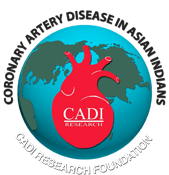Potassium
- Potassium is an essential nutrient that helps organs, including the heart, to function properly and may help counteract the effects of high sodium levels on the body.
- Since fruits and vegetables are rich in potassium and low in sodium, its liberal intake is recommended for the prevention and treatment of high blood pressure.1 Adequate consumption of fruits and vegetables provide most of the necessary antioxidants and vitamins which are preferred over dietary supplements.
- Good sources of potassium include bananas, oranges, beans, fish, and dairy products. Most fruits, vegetables and dairy products have a low sodium-potassium ratio, meaning they are good sources of potassium without high levels of salt.
- Processed foods, on the other hand, are often high in sodium and contain less potassium.2
- While you can get an overdose of potassium from pills, it is not likely through food consumption. Furthermore, dietary supplements do not have the health benefits associated with a diet rich in fruits and vegetables.
- In a study involving over 12,000 participants, researchers surveyed U.S. adults over the course of nearly 15 years to track their sodium and potassium intake and health, among other factors. A low intake of potassium, especially in combination with high sodium was associated with an increased risk of cardiovascular disease (CVD) and death.3
Sources
1. Enas EA, Senthilkumar A, Chennikkara H, Bjurlin MA. Prudent diet and preventive nutrition from pediatrics to geriatrics: current knowledge and practical recommendations. Indian heart journal. Jul-Aug 2003;55(4):310-338.
2. www.cardiosmart.org. Accessed July 28, 2011, 2011.
3. Yang Q, Liu T, Kuklina EV, et al. Sodium and Potassium Intake and Mortality Among US Adults: Prospective Data From the Third National Health and Nutrition Examination Survey. Arch Intern Med. Jul 11 2011;171(13):1183-1191.

